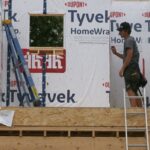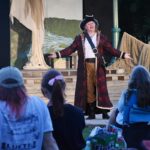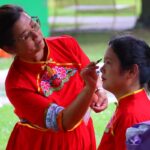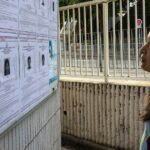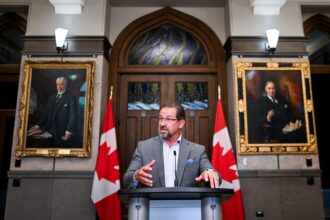In a landmark recognition that signals a shifting paradigm in Canadian education, Northland School Division has been awarded the prestigious Public School Boards’ Association of Alberta (PSBAA) Presidential Award for its groundbreaking work in advancing reconciliation within Alberta’s educational framework. This recognition comes at a critical juncture when Indigenous education initiatives are increasingly moving from symbolic gestures to substantive action across the province.
The division, which serves approximately 2,700 students across 19 schools in northern Alberta, has fundamentally transformed its approach to education by weaving Indigenous knowledge, languages, and cultural practices throughout its curriculum. What distinguishes Northland’s initiative is its comprehensive strategy that extends beyond classroom walls, creating a holistic educational environment that honors and preserves Indigenous heritage.
“This isn’t simply about adding Indigenous content to existing frameworks—it’s about reimagining education through an Indigenous lens,” explained Dr. Nancy Spencer-Poitras, Superintendent of Northland School Division. “Our students now see themselves reflected in what they learn, how they learn, and who teaches them. The impact on student engagement and cultural pride has been profound.”
The division’s innovative approach includes land-based learning programs where students learn traditional skills directly from community Elders, Indigenous language immersion opportunities that have revitalized threatened languages, and curriculum development that incorporates local Indigenous knowledge systems alongside provincial requirements.
Statistics support the effectiveness of these initiatives, with Northland reporting a 23% increase in student retention rates and a 17% improvement in academic performance metrics over the past three years. Perhaps more significantly, community surveys indicate that 89% of Indigenous parents now feel their cultural values are respected within the school system—a dramatic improvement from just 42% five years ago.
The PSBAA recognition acknowledges that Northland’s model offers valuable insights for other school divisions navigating their own reconciliation journeys. The award citation specifically highlighted how Northland has managed to create a framework that balances provincial educational standards while honoring Indigenous ways of knowing—a delicate balance that many institutions struggle to achieve.
Education experts across Canada note that Northland’s success stems from its commitment to genuine partnership with Indigenous communities rather than top-down implementation of reconciliation initiatives. The division’s governance structure includes significant Indigenous representation, ensuring that decisions about curriculum, teaching methods, and school policies are made with authentic Indigenous input.
“What we’re witnessing at Northland represents the future of education in a country committed to genuine reconciliation,” said Dr. Charlene Bearhead, education advocate and reconciliation specialist. “Their approach demonstrates that when Indigenous communities have meaningful control over their children’s education, both academic outcomes and cultural continuity improve dramatically.”
The recognition comes amidst a broader national conversation about reconciliation in education following the Truth and Reconciliation Commission’s Calls to Action, several of which specifically address educational reform. Northland’s success offers a practical roadmap for implementing these recommendations in ways that yield measurable results.
As other educational institutions across Canada seek to follow Northland’s example, the question remains: Are we prepared to reimagine our educational systems in ways that genuinely honor Indigenous knowledge and perspectives, or will reconciliation remain primarily at the level of symbolic gestures? Northland’s experience suggests that meaningful change requires not just curriculum adjustments, but fundamental shifts in how educational decisions are made and whose voices guide them.





